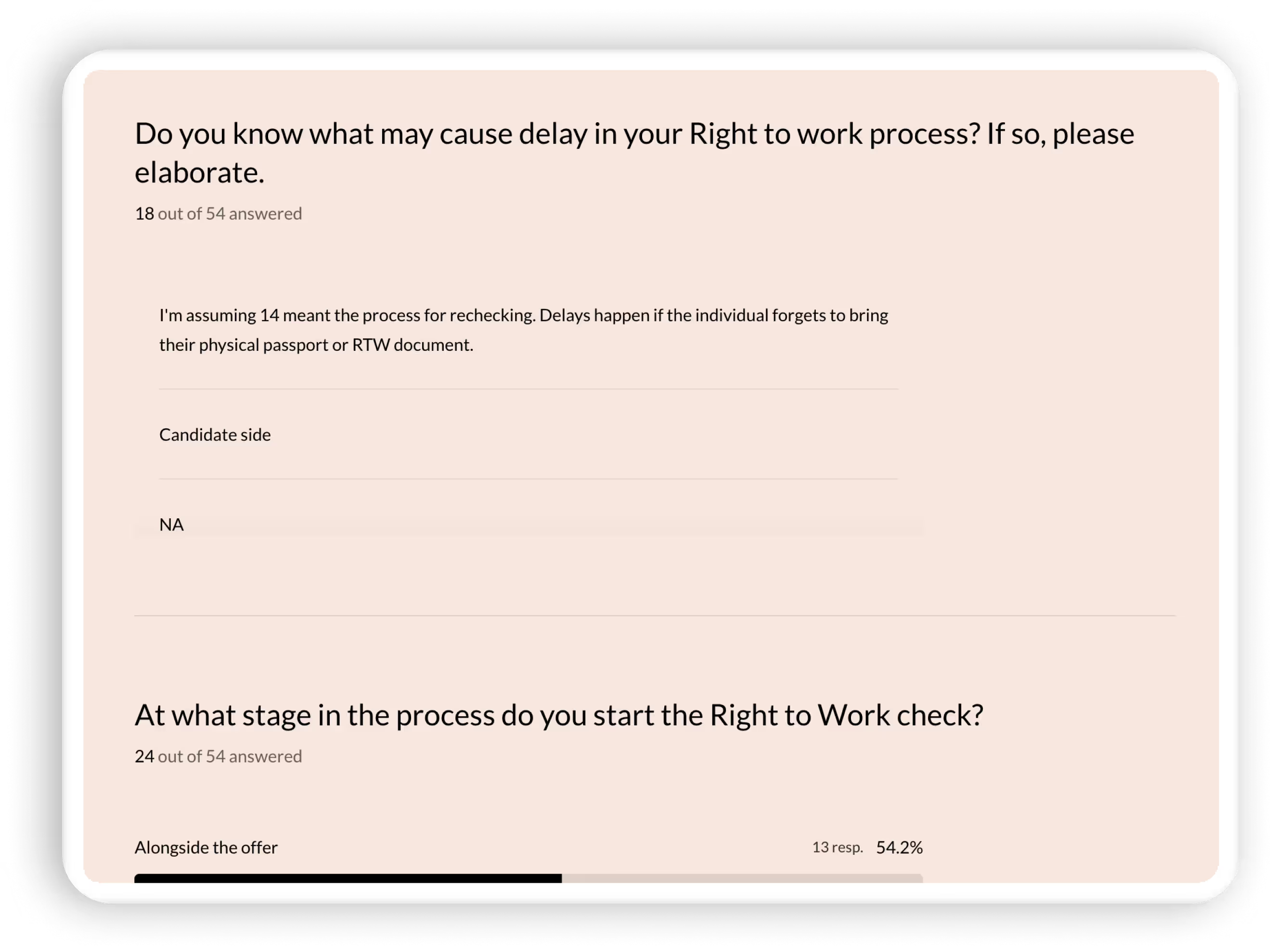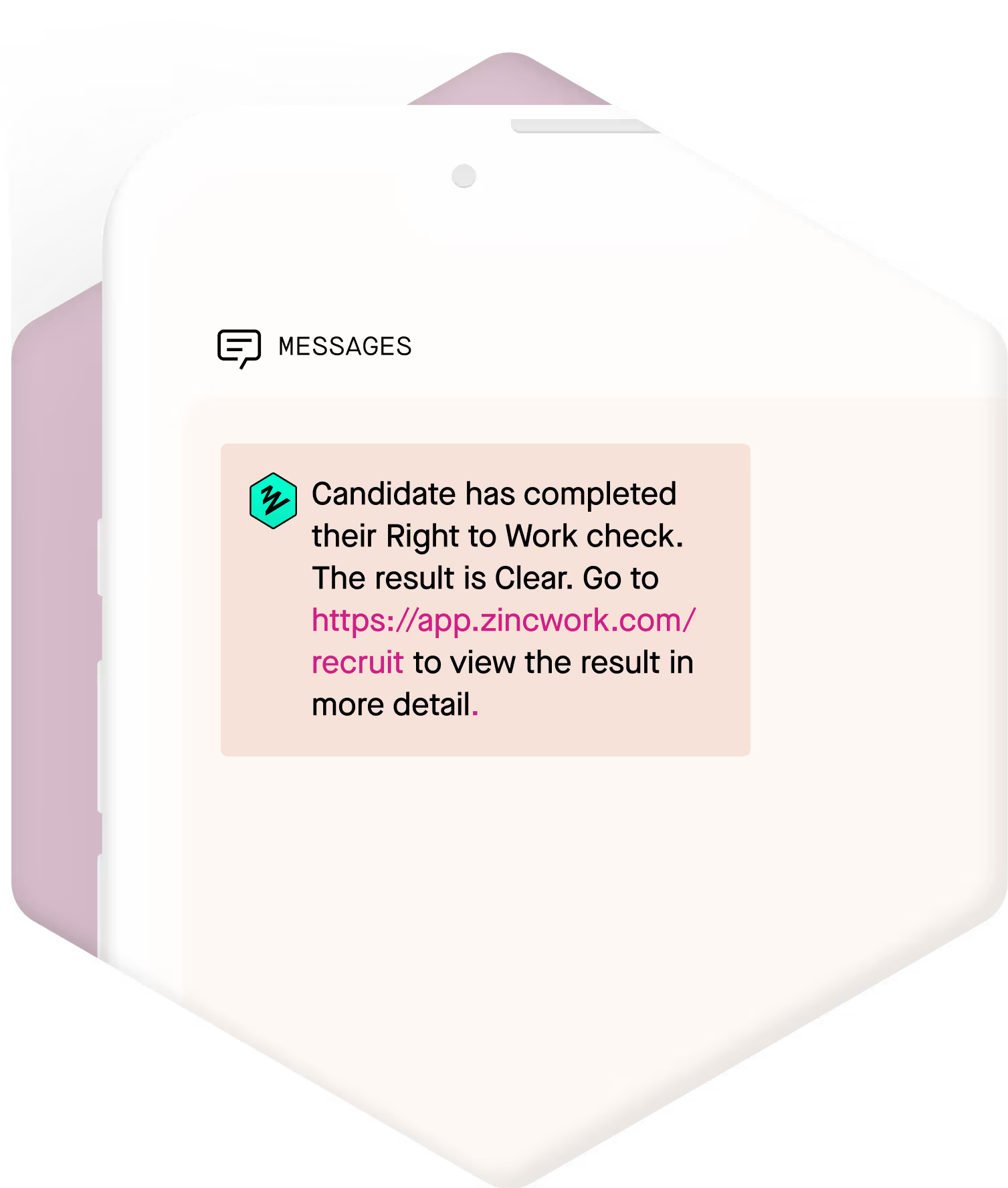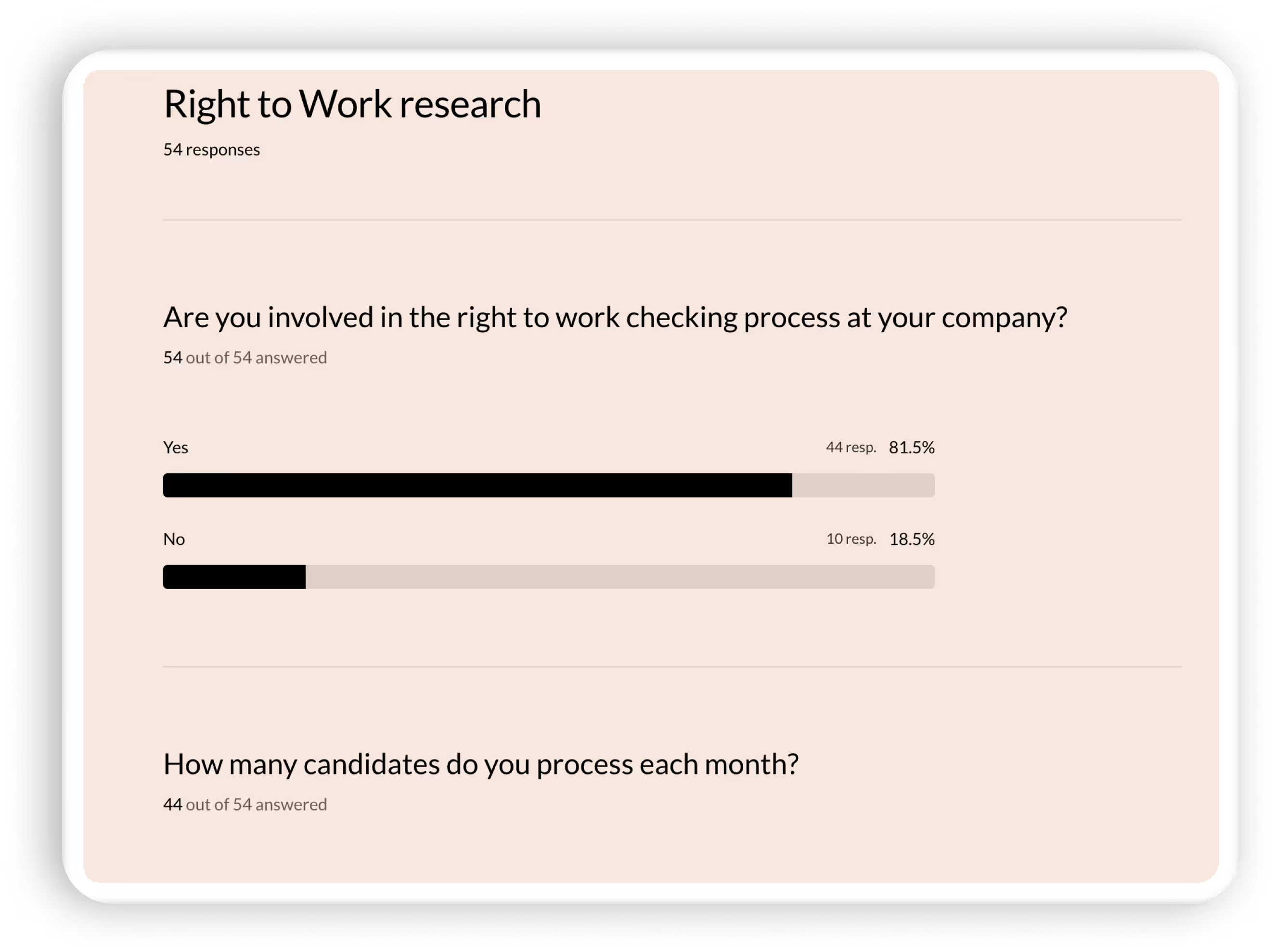It's not you, it's your hiring process. Learn how to improve your hiring with our latest report - How to Lose a Candidate in 10 Days.

Background checks
Directorship
Criminal
ID verify
Right to work
Education
Financial
Sanctions
References
Address
Media
Credit
Integrations
Workable
Teamtailor
Workday
HiBob
SmartRecruiters
Ashby
Lever
Pinpoint
Freshteam
Greenhouse
Comeet
Talenthub
Solutions
Enterprise
Scalable solutions designed for large organisations' complex needs.
Startups
Empower your startup's growth with fast and reliable background checks.
Become a partner
Collaborate with us to offer your clients a smarter background check solution.
Marketplace
Explore our integrated services designed to make HR's job easier.
Healthcare
Ensuring patient safety with rigorous background checks for healthcare professionals.
Education
Trusted by educational institutions for thorough and compliant background checks.
Finance
Secure your financial operations with our comprehensive background check solutions.
Resources
Blog
Resources, guides on the latest info about background and employment checks
Global background checking tool
Educational tool to the background check regulations globally
ROI calculator
Find out how much time and money is lost running background checks
Podcast
Hear from industry experts across HR, TA and recruitment
Templates
Background checking and reference templates
Right to work survey
Beautiful & creative websites that help your business exceed the competition.
Background checking guide
Your comprehensive guide to understanding and implementing background checks.
Reference guide
Master the art of professional referencing with our step-by-step guide.
Zinc
Why Zinc
Discover the reasons why top HR teams choose Zinc for their background checks.
Mission
Our commitment to simplifying background checks for a safer work environment.
Case studies
Real-world examples showcasing how Zinc has streamlined HR processes.
G2
See what our customers are saying about us on G2.
Comparison
See how Zinc stacks up against other background check solutions.
Careers
Join our team and help revolutionise the HR, TA, and recruitment industry.
Support
Get quick and reliable assistance for all your Zinc-related queries.





